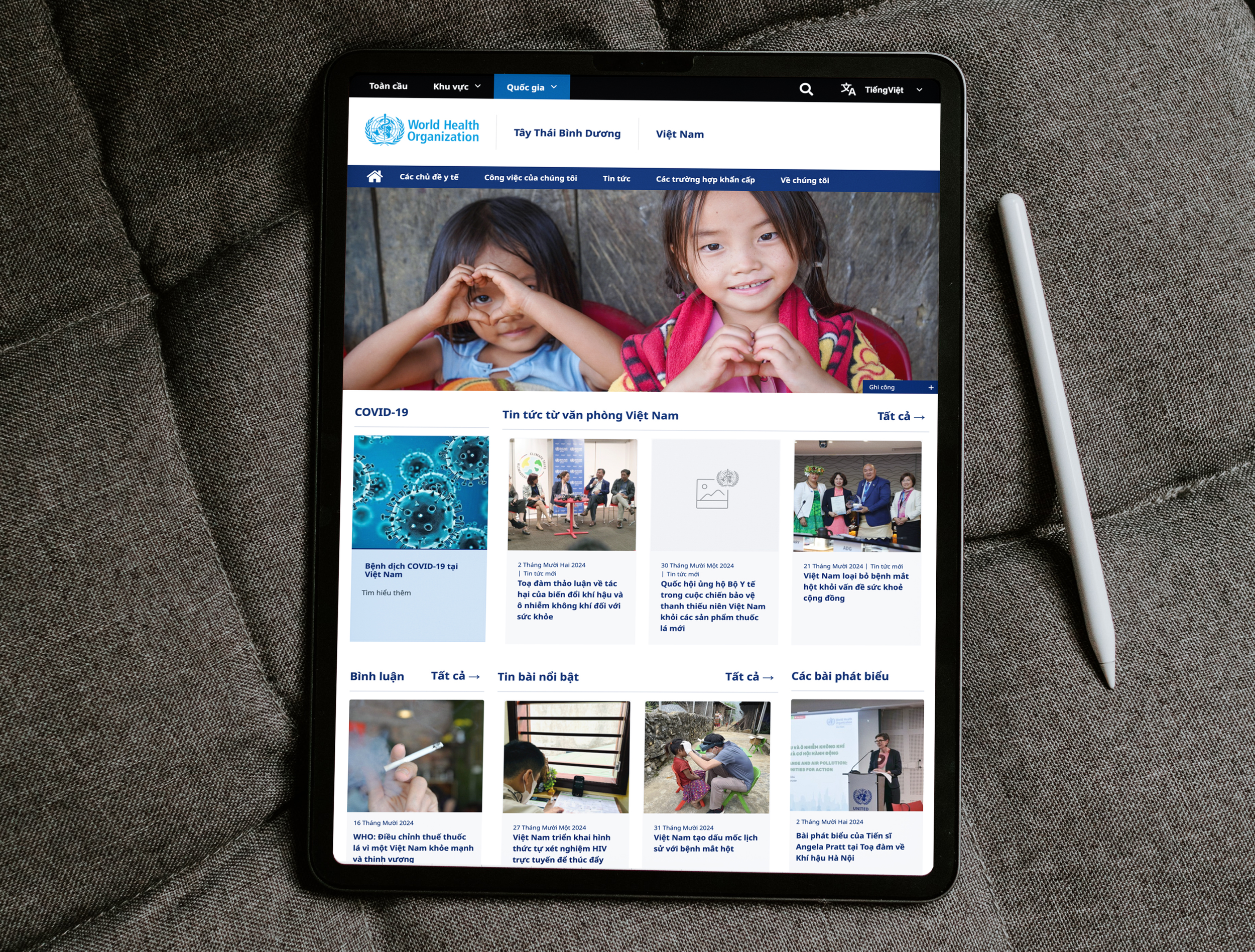
Decentralised digital transformation.
A regional model for digital systems and governance.
World Health Organization, Western Pacific Region
CLIENT
The World Health Organization is a specialised agency of the United Nations responsible for international public health. The Western Pacific is its largest region, covering 37 countries and areas and representing over a quarter of the world’s population.
BRIEF
The Western Pacific Region initiated a comprehensive digital transformation to improve engagement with its member states and stakeholders. Kore was tasked with conducting an assessment of the current system and developing a new, scalable digital ecosystem that could support regional operations, integrate with global systems, and facilitate better user engagement and content management.
With over 25,000 web pages managed by 100 decentralised content editors, the existing digital ecosystem was complex, inefficient, and unable to meet the region’s unique needs.
After an extensive assessment of the current system, Kore developed a new digital ecosystem model—a scalable, modular framework designed to address the specific needs of the Western Pacific Region while integrating seamlessly with WHO’s global systems. This model not only streamlined content and facilitated better content management, it also aligned WHO’s communication strategy across regions, ensuring consistency in user experience, while allowing flexibility for regional customisation.
We introduced significant changes to WHO’s global website architecture, including a domain model and global navigation system that allowed users to more easily find geographically contextual content. This resulted in a double-digit increase in the number of users discovering regional content, ensuring WHO’s digital presence was more responsive to the unique needs of different countries and regions.
As part of the digital transformation, Kore developed a new governance structure for content editors, enabling a standardised approach to content creation, management, and publishing. This governance model ensured consistency across decentralised teams and created a sustainable approach to maintaining the digital ecosystem long term.
To ensure the success of this transformation, we provided extensive training and workshops for WHO staff, ensuring buy-in from all stakeholders and enabling staff to fully understand the value proposition of the new digital strategy. This collaborative approach, including multiple feedback loops with key departments, facilitated seamless change management across the region.
Global Adoption and Expansion
Following the success of our work with the Western Pacific Region, the model was adopted across other WHO regions. Kore conducted region-specific research and business analysis with the senior stakeholders and staff of the South-East Asia Region in New Delhi and the European Region, operating from Brussels and Copenhagen. These engagements allowed us to adapt the model to the unique needs of each region, further expanding WHO’s global digital transformation initiative.
This work formed the backbone of WHO’s global digital ecosystem for regional and country offices, enabling the organisation to build a cohesive, integrated approach across its regions, with each adaptation further refining the system for global use. As a result, WHO has been able to streamline its digital presences, improve user engagement, and enhance its ability to respond to public health needs in a more dynamic and context-sensitive manner.
IMPACT
57% increase in website unique pageviews year on year, demonstrating significant growth in user engagement.
205% increase in average time spent on page, indicating improved content relevance and user experience.
The domain model achieved top Google search rankings for emergency-related queries, ensuring critical information reached users efficiently.
The new content structure resulted in a 75% reduction in web pages while maintaining year-on-year pageview levels, simplifying the digital ecosystem and improving content discoverability.
A 95% approval rating from senior governmental stakeholders across multiple countries, highlighting the positive reception and impact of the digital transformation.
This work would ultimately serve as the foundation for a broader transformation of WHO’s global digital ecosystem improving access to health information across the world.
57% ⏶
increase in unique page views year-on-year
75% ⏷
reduction in number of web pages
95% ✓
approval rating from senior governmental stakeholders
205% ⏶
increase in time spent on page
Gallery









